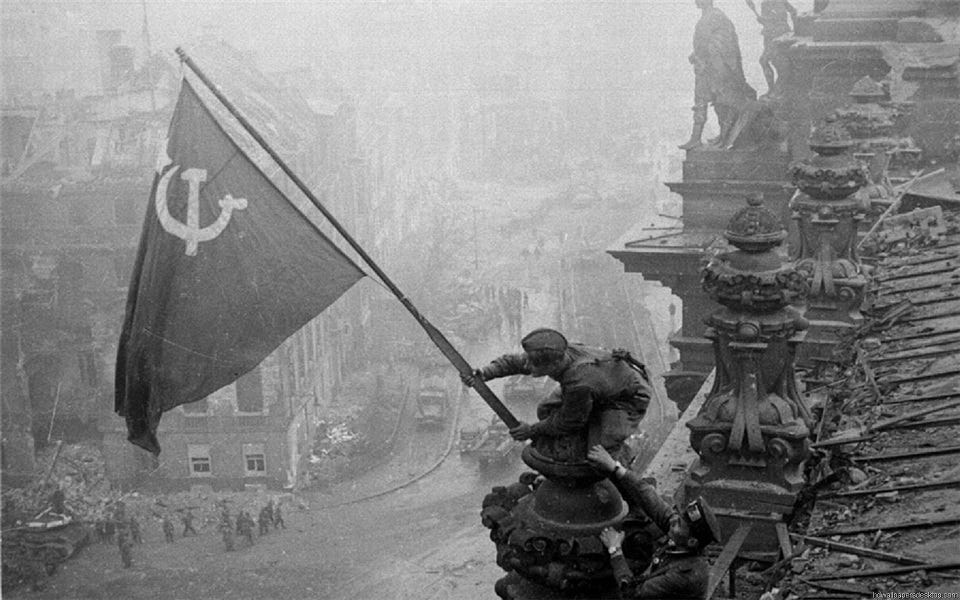Naum Offengenden was the very Jewish name of my grandad, a mensch who came into the world at the same time the Soviet Union was taking its first steps. There was never a good time in history to have a very Jewish name, and that’s especially true in Eastern Europe, but he didn’t have much of a say in the matter. And in any case, Eastern Europeans pride themselves on being able to tell Jews by looks alone, and with his face, I am not sure he would have escaped the bullying that came with the territory.
But the USSR, at least according to its official propaganda, was the first truly atheist, democratic, egalitarian state in history. Gone were Tsarist era distinctions between serfs and nobility. Gone was organized religion. Gone were ethnic differences. None of it mattered, except: the proletariat. The working man (and, when they needed a bigger labor force, the working woman). The country — and soon the world — will be reshaped in the image of the working man, newly empowered and emboldened, springing the new empire forward into the future by the force of hard work, and belief in the powers of progress (and central planning).
For my grandpa, this was all very exciting. He tried on the Socialist vision for size and it fit. It’s easy to dismiss today, but it must have been pretty intoxicating to be part of a movement larger than yourself that paints an egalitarian future, where community comes together to take care of its poor and its sick, where Jews are seen as equals, where progress comes from the strength of the masses rather than rugged individualism.
And so he threw himself into the cause.
And when the cause asked him to fight for it in June of 1941, he threw himself into that too. He was a kid, barely in his 20s then, having just met my grandma, and holding on to a bizarre ambition to become both a physicist and a historian (which he did, eventually).
He went away to fight and didn’t come back for 5 years. 5 years. He fought and fought and fought. From the Baltics all the way to China, Naum Offengenden gave himself to the war effort. Naum was also the Politruk of his unit — the political commissar responsible for motivating soldiers through socialist education, teaching them, for instance, why fascism as an ideology is the enemy of human wellbeing and, of course, socialism.
Naum survived the war, but only sort of. His heart, having witnessed more suffering than its pre-fabricated quota allowed, pumped for several years before eventually succumbing to the weight of its grief.
And so May 9th was a really important day in my Ukrainian-Israeli household. We would talk about the war, about my grandpa. We would listen to war-era songs, many of which have made it into my Spotify. It’s telling how large the war looms in post-Soviet consciousness in that despite the many wars Russia and the USSR fought, there is only one War with a capital W, and everyone knows it.
This is why today is hard, and confusing, frankly. Putin is doing what every effective leader in history has done: reshape the past, and relive its glory, to justify his narrative of the present. So today we will see massive celebrations of Victory Day in Russia, with the same war-era songs that I love playing on infinite stages, with documentaries about the courage of the Soviet people on repeat, with marches and badly designed portraits of war heroes on sides of buses.
But as Russians murder Ukrainians with no remorse, day after day, and use Victory Day to justify continuing to do so, I feel a pressure to nix the celebration, and forget this holiday and what it has come to represent. But that would be a disservice to my grandpa, and to the generation of men and women whose lives were so deeply impacted by the War. And a disservice to the generation that was raised by them — like my parents — taught by living examples of courage and sacrifice to carry forward both the inexorable pain of life and a deep sense for how ephemeral, how precious this existence is.
And so in memory of my grandpa, Naum Offengden, and the many who didn’t come back from the War against fascism, I will be celebrating Victory Day today. I am celebrating it for my mom, his daughter. I am celebrating it for myself: to never forget what destruction humanity is capable of, and to remember that the millions of people who gave their lives to the war were all individual stories of courage and suffering, humans who made decisions and drank tea and danced and cried sometimes too. I want to remember them.




This is great, as always.
This is beautiful. Thank you for writing and sharing it.